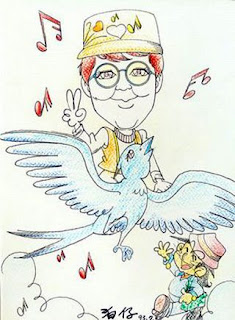December 17, 2014
 The Asia Foundation’s director of Regional Cooperation Programs, John J. Brandon, and Chen-Dong Tso, the Foundation’s senior advisor in Taiwan, recently spoke with former Asia Foundation grantee, Professor Yenlin Ku, a leading feminist in Taiwan who
The Asia Foundation’s director of Regional Cooperation Programs, John J. Brandon, and Chen-Dong Tso, the Foundation’s senior advisor in Taiwan, recently spoke with former Asia Foundation grantee, Professor Yenlin Ku, a leading feminist in Taiwan who  helped to establish Taiwan’s first women’s studies center.
helped to establish Taiwan’s first women’s studies center.
As an accomplished leader, looking back, what do you consider the highlight or most remarkable moment in your career?
I was fortunate to grow up as a member of the “new generation,” self-claimed by the baby boomers in Taiwan, when the future of the economy looked bright and social reform feasible. While studying in the U.S. in the early 1970s, the burgeoning feminist movement inflamed my passion for gender justice. Having been deeply involved in the feminist movement in Taiwan since 1976, I was part of the first generation of feminist scholars who did research and taught classes from a feminist perspective on the island, and I also wrote articles, published books, and started new organizations collectively with other sisters. In 1998, I became the first “femocrat” when Mayor Ma Ying-jeou recruited me into Taipei City Government to head the Institute of Public Services and then the Department of Social Services. After leaving public service, I started the Senior Leaders Association in 2010 to turn people’s attention to public policies in an aging society.
In your view, what are the biggest challenges and opportunities that the future holds for Taiwan?
The biggest challenge is the political polarization caused by too frequent elections and symbolized by party colors. In order to win votes, politicians resort to splitting the society and causing antagonism among different groups of people. There are a few comprehensive long-term policies, but too many are hastily developed to cater to voters’ favorite interests.
I see hope and opportunities in the non-partisan civil society. Many civilian groups are made up of volunteers offering services that preserve and develop social values and traditional knowledge. The blending of tradition and innovation in the area of health enhancement and social care could be the basis for Taiwan’s greater contribution to the world.
Since the late 20th century, women in Taiwan have assumed a more active social role and gained visibility in all walks of life. Yet gender stereotypes still loom large. In 2013, women made up more than one third of college and university faculty, but only 6.7 percent of the presidents. 2011 was the first time a woman became head of a national university. However, the media was not only interested in her academic achievements, but ever more so in her habit of wearing high-heels in the labs as well as on hiking trails.
Based on your leadership experience, what advice would you give young leaders in Taiwan today and what suggestions would you give to young women leaders Taiwan?
It is important to acquire basic knowledge and academic skills as early as possible. Don’t refrain from learning a new language, and try to see the world, understand your neighbors, study history, and make your own judgments.
I would especially encourage young women to heed their inner voices. Feel free to pursue your dreams and believe that you can always do better than what you think.
As a former grantee of The Asia Foundation, what are your recollections about the experience and how did it help to shape your career?
I have fond memories of The Asia Foundation and two representatives in particular, Dr. Sheldon Severinghaus and Mrs. Edith Coliver, whom I had contact with. The Asia Foundation sponsored my trip to the Asian Women’s Forum in Davao, in the Southern Philippines, in 1985. It was enlightening for me to learn Marxist feminist analysis directly from the experiences of other Asian sisters. Dr. Severinghaus took the suggestion to sponsor the inauguration of the first women’s studies program in Taiwan at National Taiwan University after I turned in my report. The prestige of NTU helped to open up public discourse on women’s issues. Interest in women’s studies began to grow in the academic community. However, it took another 10 years before the legitimacy of feminism was readily accepted.
As The Asia Foundation marks its 60th anniversary, what do you regard as the Foundation’s main contribution toward improving lives and expanding opportunities in Taiwan?
The feminist movement in Taiwan has won a leading position in the world by producing many institutionalized results in a couple of decades, such as the passage of the Gender Equality Employment Act and Gender Equality Education Act, as well as establishing gender equality machineries at various levels and branches within the government. The Asia Foundation’s generous sponsorship for women’s groups and studies programs from the 1970s to the 1990s added momentum to the movement substantially.








沒有留言:
張貼留言